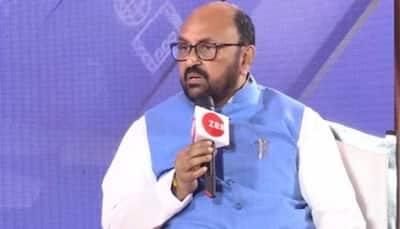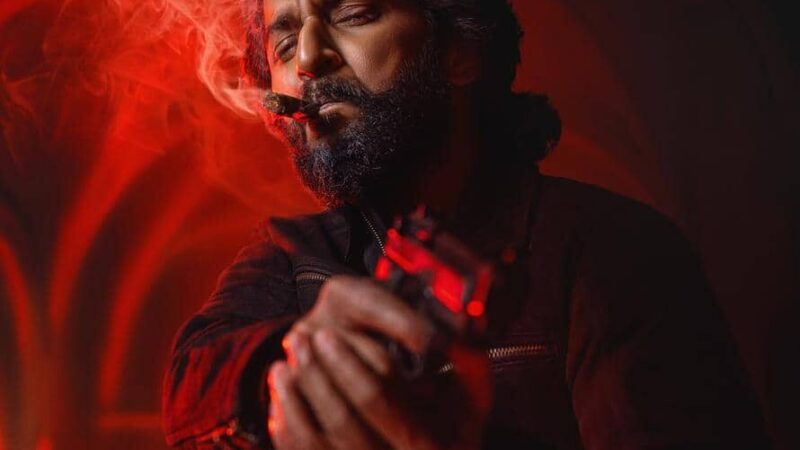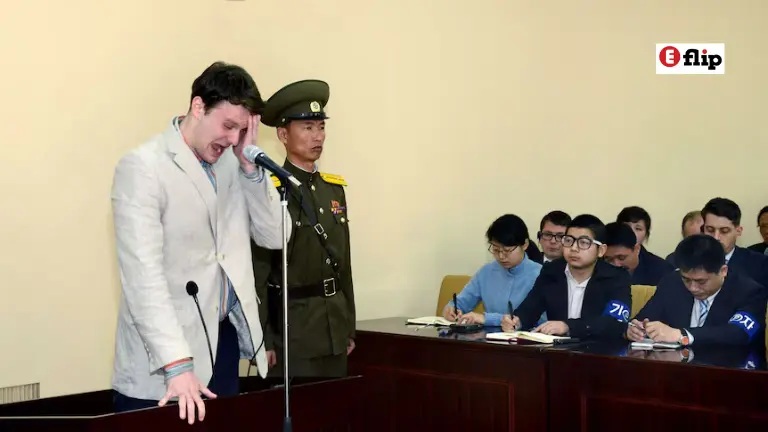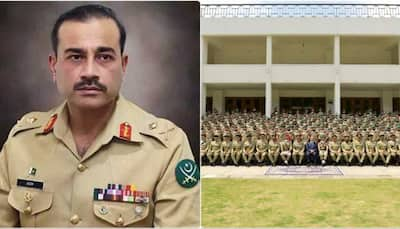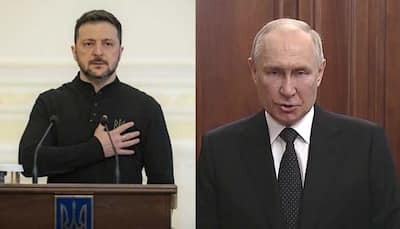In January 2016, Otto Warmbier, a 21-year-old American college student from Cincinnati, Ohio, embarked on a study-abroad trip to China, with a brief stop in North Korea. Full of curiosity and a zest for adventure, Otto could never have imagined that a simple act—allegedly taking a propaganda poster from a hotel—would lead to his imprisonment, torture, and death. Otto Warmbier became a tragic symbol of the brutality of Kim Jong-un’s regime, a young life silenced by tyranny. For his parents, Fred and Cindy Warmbier, and countless others worldwide, Otto Warmbier’s story is a call for justice and a reminder to never forget the human cost of oppression. This blog delves into Otto’s ordeal, its global impact, and why his legacy endures in 2025.
Otto’s Journey: A Young Man Full of Promise
Otto Warmbier was a junior at the University of Virginia, studying economics and commerce, with a bright future ahead. Described by friends as charismatic, intelligent, and kind, he was eager to explore the world. In late 2015, he joined a five-day tour to North Korea organized by Young Pioneer Tours, a company catering to adventurous travelers. For Otto, it was a chance to see a reclusive nation firsthand, a place few Americans ever visit. “He was always curious, always smiling,” his father Fred recalled in a 2017 interview. But that curiosity would come at an unthinkable cost.
On January 2, 2016, as Otto Warmbier prepared to leave Pyongyang, North Korean authorities detained him at the airport. The charge? Allegedly stealing a propaganda poster from a restricted area of the Yanggakdo International Hotel, an act labeled a “hostile act” against the state. A grainy security video, later released by North Korea, purportedly showed Otto removing the poster, though its authenticity remains disputed. For Otto’s family, the accusation was absurd—a minor infraction blown out of proportion by a regime desperate for leverage.
Imprisonment and Torture: A Nightmare Unfolds
Otto Warmbier’s 17-month ordeal in North Korean captivity is a harrowing tale of cruelty. In March 2016, after a staged trial lasting one hour, he was sentenced to 15 years of hard labor. During a televised confession, Otto, visibly distraught, apologized, claiming he acted on behalf of a church group—a statement his family believes was coerced. “Otto was not himself; he was broken,” Cindy Warmbier later said. From that moment, Otto Warmbier vanished into North Korea’s opaque prison system, cut off from the world.
What happened to Otto in captivity remains shrouded in mystery, but evidence points to severe torture. When he was finally released in June 2017, Otto Warmbier was in a coma, suffering from extensive brain damage due to oxygen deprivation. Doctors at the University of Cincinnati Medical Center found no evidence of botulism, as North Korea claimed, but noted signs of physical abuse, including scars and neurological trauma. Fred Warmbier described his son’s condition: “His teeth were misaligned, his body was battered. They destroyed him.”
Otto Warmbier passed away on June 19, 2017, just six days after returning home, surrounded by his family. He was 22. For Fred and Cindy, the loss was unimaginable, compounded by the regime’s refusal to provide answers. “Otto was a light, and they snuffed it out,” Fred said at a memorial. The Otto Warmbier tragedy became a global rallying cry, exposing the horrors of Kim Jong-un’s regime.
The Global Impact: A Symbol of Tyranny
The Otto Warmbier case sent shockwaves worldwide, highlighting North Korea’s human rights abuses. In the US, it fueled outrage, with President Donald Trump, who took office in 2017, calling Otto’s treatment “a total disgrace.” The US imposed stricter travel bans to North Korea, and the State Department continues to warn against visits, citing Otto’s case. In 2018, Trump met Kim Jong-un in Singapore, raising hopes for diplomacy, but Otto’s parents criticized the summit, feeling it legitimized a brutal regime.
Internationally, the Otto Warmbier tragedy drew condemnation. The UN’s 2014 report on North Korea’s “systematic” human rights violations gained renewed attention, with Otto’s case cited as evidence. Posts on X in 2025 reflect ongoing anger, with users sharing hashtags like #JusticeForOtto and calling for accountability. For activists like Suzanne Scholte of the Defense Forum Foundation, Otto’s story galvanizes efforts to support North Korean defectors and expose the regime’s prison camps.
The Otto Warmbier case also strained US-North Korea relations. While Trump’s diplomacy yielded little, President Joe Biden’s administration in 2025 maintains sanctions, with Otto’s name invoked in Congressional hearings on human rights. The Warmbiers’ lawsuit against North Korea, which won a $501 million judgment in 2018, remains a symbolic victory, though unpaid due to Pyongyang’s defiance.
A Family’s Fight: Justice for Otto
For Fred and Cindy Warmbier, Otto Warmbier’s death was not the end but the start of a mission. They founded the Otto Warmbier Foundation to promote human rights and educate youth about oppressive regimes. “We want Otto’s story to save lives,” Cindy said in a 2023 interview. The Warmbiers have spoken at universities, met with policymakers, and supported North Korean defector Yeonmi Park, whose memoir echoes Otto’s ordeal. Their advocacy keeps Otto Warmbier’s memory alive, ensuring his tragedy fuels change.
The family’s pain is raw. Fred described finding Otto’s untouched college textbooks, a reminder of dreams cut short. Yet, their resilience inspires. In 2025, the Warmbiers are pushing for the Otto Warmbier North Korea Sanctions Enforcement Act, which aims to tighten economic pressure on Pyongyang. On X, supporters share their speeches, with one user writing, “Otto’s parents are warriors for justice.”
Challenges: Seeking Accountability
Holding North Korea accountable for Otto Warmbier’s death is fraught with challenges. The regime’s secrecy makes evidence-gathering nearly impossible, and its isolation limits diplomatic leverage. Kim Jong-un’s refusal to acknowledge responsibility, coupled with state propaganda blaming Otto, compounds the injustice. The UN Security Council’s veto powers, held by China and Russia, block tougher sanctions, leaving activists frustrated.
For ordinary people like Sarah, a Cincinnati teacher who followed Otto’s story, the Otto Warmbier case feels personal. “He was just a kid, like my students,” she says. The lack of closure—no apology, no reparations—fuels calls for action, but geopolitical realities, including US-China tensions, complicate progress. North Korea’s nuclear ambitions further overshadow human rights, making Otto’s case a secondary priority for some governments.
What’s Next: Keeping Otto’s Legacy Alive
In 2025, Otto Warmbier’s legacy endures through advocacy and remembrance. The Otto Warmbier Foundation plans events to mark the 10th anniversary of his detention in 2026, including scholarships for students studying human rights. Efforts to seize North Korean assets, like frozen bank accounts, could fund reparations for Otto’s family. Globally, NGOs are pushing for a UN inquiry into North Korea’s prison camps, citing Otto’s case as a catalyst.
For individuals, Otto’s story is a warning. Travel advisories remain stringent, and companies like Young Pioneer Tours face scrutiny for promoting North Korea tours. On a broader scale, Otto’s tragedy underscores the need for unified pressure on Pyongyang—through sanctions, diplomacy, and support for defectors.
A Personal Reflection
Otto Warmbier was more than a victim; he was a son marriage, a dreamer whose curiosity led him to a place where freedom doesn’t exist. For Fred, Cindy, Sarah, and millions worldwide, his story is a call to fight tyranny. As we reflect on the Otto Warmbier tragedy in 2025, let’s honor his memory by advocating for justice and human dignity.
Have you been moved by Otto Warmbier’s story? Share your thoughts or ways to support human rights in the comments. Want to make a difference? Donate to the Otto Warmbier Foundation, spread awareness, or follow our blog for updates on global justice. Let’s keep Otto’s light burning—never forget!


